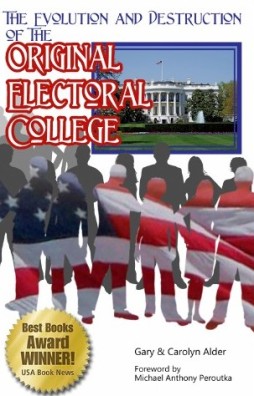General Welfare
The use of the word welfare in modern times has come to mean a government handout or dole.
We have found no evidence that any of the founders or the individuals they studied, used the dole meaning for the word. To them welfare seems only to mean well being and by adding the word general it had the sense of the well being of the people generally.
In Noah Webster’s 1828 dictionary the word welfare is defined as follows:
1. Exemption from misfortune, sickness, calamity or evil; the enjoyment of health and the common blessings of life; prosperity; happiness; applied to persons.
2. Exemption from any unusual evil or calamity; the enjoyment of peace and prosperity, or the ordinary blessings of society and civil government; applied to states.
The following quotes are from the Articles of Confederation:
ARTICLE III. The said states hereby severally enter into a firm league of friendship with each other, for their common defence [sic], the security of their Liberties, and their mutual and general, welfare binding themselves to assist each other, against all force offered to, or attacks made upon them, or any of them, on account of religion, sovereignty, trade or any other pretence [sic] whatever.
ARTICLE VIII. All charges of war, and all other expences [sic] that shall be incurred for the common defence [sic] or general welfare, and allowed by the united states in congress assembled, shall be defrayed out of a common treasury, which shall be supplied by the several states in proportion to the value of all land within each state…
It would seem that the writers of the constitution would without concern or explanation use the same phrase to express the same meaning in the preamble:
“provide for the common defence, [sic] promote the general welfare “
It is not surprising that the original users of the phrase had little need to either defend or explain their meaning of the phrase general welfare when the meaning of the word welfare was not used in the present (and may we add distorted) context of the dole.
Even though the concept of the dole was not associated with this word, there must have been those that were favoring a loose interpretation which might imply that congress could do anything that related even remotely to the general welfare. Thomas Jefferson had this to say on the subject:
I suppose its meaning to be, that Congress may collect taxes for the purpose of providing for the general welfare, in those cases wherein the Constitution empowers them to act for the general welfare. To suppose that it was meant to give them a distinct substantive power, to do any act which might tend to the general welfare, is to render all the enumerations useless, and to make their powers unlimited. We must seek the power therefore in some other clause of the Constitution. [Thomas Jefferson, Works 7:602 (footnote 28 Prophets Principles and National Survival p 372)]
Jefferson also mentions this misinterpretation of the Constitution in a letter to William B. Giles written Dec. 26, 1825
– Thomas Jefferson – General Welfare
James Madison also explains in Federalist No 41 that it would be quite a stretch of the imagination to think that the Constitution authorizes that view point:
It has urged and echoed, that the power ‘to lay and collect taxes, duties, imposts, and excises, to pay the debts, and provide for the common defence and general welfare of the United States,’ amounts to an unlimited commission to exercise every power which may be alleged to be necessary for the common defence or general welfare. No stronger proof could be given of the distress under which these writers labor for objections, than their stooping to such a misconstruction.
Return to –
Return to –


